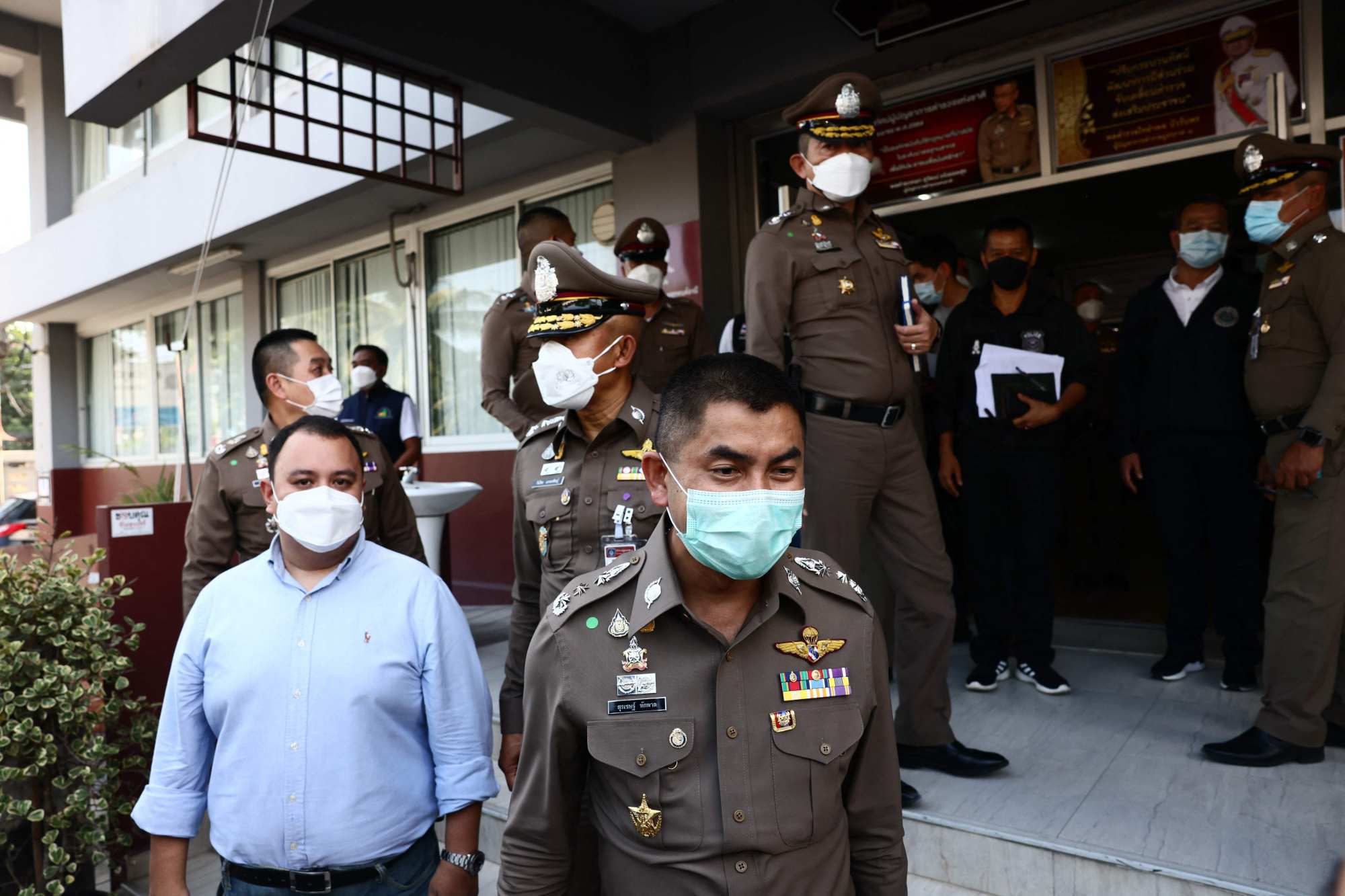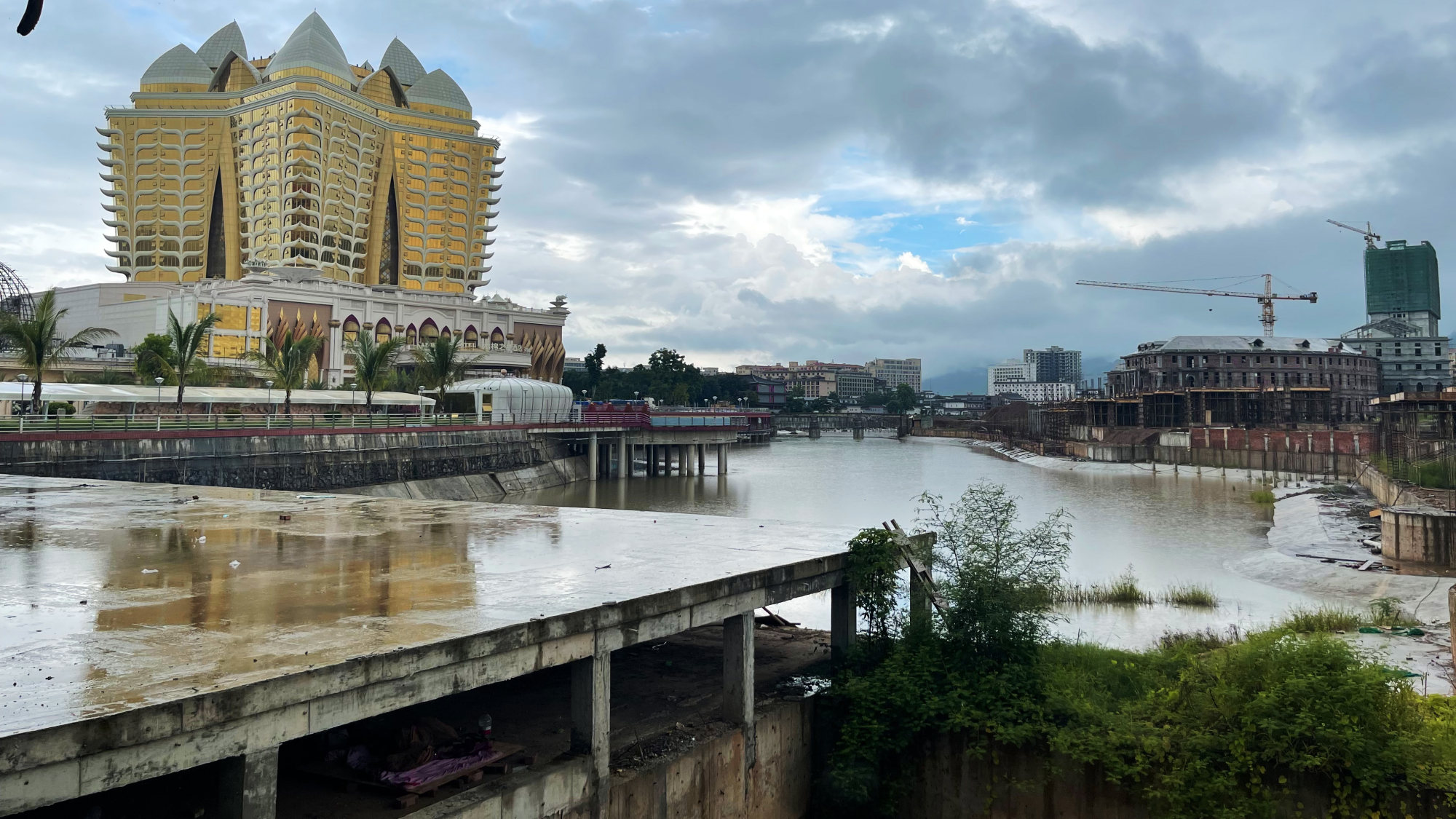
Jets, drugs and fast cars: the ‘super-rich’ Chinese gangsters who call Thailand home
- Recent raids and investigations in Thailand have highlighted potential links between Chinese gangsters and Thai local officials
- On social media where local anger over the extent of crime by foreign criminals is mounting, Thais have voiced concern over illicit Chinese money
The scandal began to unfold in late October, when a nationwide anti-drugs operation by the Thai police unearthed a cavernous illegal nightlife den – called Jinling – hidden behind a car wash in Bangkok’s Sathorn commercial district.
It catered to a near-exclusive Chinese clientele, serving up bags of ketamine and other party drugs in karaoke rooms that raged through the night, allowing guests to stash any unfinished drugs for their next visit.
Similar raids in the resort town of Pattaya also found threads linking several suspected Chinese criminals through a web of Thai frontmen to authorities who had apparently not seen these anything-goes nightlife venues despite them drawing thousands of guests each night.
An eye-popping list of assets built from those illegal night spots were uncovered by raids over the following weeks, including a US$5.7-million mansion, supercars, millions of US dollars in cash and stashes of methamphetamine hidden away inside luxury condos in some of Bangkok’s most exclusive buildings, apparently stockpiled for sale at the clubs.
Arrests have since pointed to five suspected Chinese gangs running criminal enterprises on student visas and fake Thai identities. One alleged ringleader arrested in early November even had a bogus Chinese embassy car and police escort motorcycle.

But the spotlight has been trained on one suspect in particular: Tuhao, also known as Chainat Kornchayanan.
A Chinese national with Thai citizenship, he turned himself into police on November 23. He denies the drugs and money laundering charges that are being brought against him.
“Tuhao is married to the niece of Police General Pracha Promnok [a former Justice Minister],” Thailand’s most prominent police officer Lieutenant-General Surachate Hakparn, who is leading the crackdown, told reporters last week. “So it’s natural that he knows a lot of police and former ministers, there’s no secret there.”
The Chinese scam gangs of Cambodia forcing desperate young Asians into crime
But he said the gangsters with Thai IDs must have found a way through the kingdom’s strict immigration laws.
“We have to investigate which local officials have helped them,” he said. “We will get to the bottom of it, whoever is taking part in this illegal business will face legal consequences. They will not be spared.”
Tuhao has had assets of more than 5 billion baht (US$113 million) seized so far, including a jet, land and three mansions, while the Chinese ownership of dozens of luxury houses in prime Bangkok developments are being investigated for links to his associates.
‘Zero-dollar’ millionaire
Still, the money made at the time dominates business ownership in many resort areas.
“These people are too powerful,” a veteran tour guide in Pattaya, one of the main areas targeted by the zero-dollar tours, told This Week in Asia. “They may have been arrested now, but unless the media takes this seriously and continues to chase this down, I worry they’ll soon be released.”

Thai police say Tuhao diversified into nightlife and other businesses during the pandemic, using Thai nominees to buy property and set up companies.
Meanwhile, his connections to those in power have come under scrutiny.
The ruling Phalang Pracharat Party admitted in late October that Tuhao had made political donations, through legitimate channels, of around US$100,000 – an issue being probed by the Election Commission.
Police are looking at how Tuhao secured Thai citizenship after a few short years in the country and are seeking other potentially hidden assets and bank accounts. Several police officers and other officials are under investigation across the country as the reach of his network unspools.
“Keep in mind that we’re fighting against super-rich people, with enormous wealth,” Police Lieutenant-General Surachate told reporters this week. “So we have to be very thorough in finding evidence to bring them to justice.”
Tuhao was denied bail by a Bangkok court and says he will prove his innocence during trial.
Thais fear for the future
The apparent years of impunity are raising difficult questions for Thai authorities over corruption, influence-peddling and the trading of favours for those with money to bend the rules.
“Society should join me questioning how someone like Tuhao has accumulated more than 5 billion baht in just 10 years?” Chuwit Kamolwisit, a former nightlife tycoon, lawmaker and part-time anti-corruption crusader, told reporters on Wednesday.
Chuwit has led the charge against the Chinese gangsters, hosting theatrical near-daily press conferences revealing the alleged wealth, connections and finances of the main suspects.
He says the gangs set up a scheme during the pandemic to stay in the kingdom and bring thousands of their compatriots in. It involved paying Thai immigration officials to allow them to establish bogus foundations, which they then used to secure volunteer visas, he alleges.
Thai drug suspect dies after police use plastic bag in extortion attempt
At least 3,000 Chinese people have poured into the kingdom through this route, Chuwit said, many to run illegal businesses and launder dirty money.
“How could you not protect the Thai people, how could you let these Chinese dirty businesses in?” he said.
Chuwit’s scattergun allegations – many substantiated by Thai police, others unproven – have nonetheless highlighted the hold of illicit Chinese money over entire areas of the regional economy.
They have even drawn a rare media rebuke from one of the Mekong region’s most notorious Chinese kingpins, Zhao Wei, a publicity-shy billionaire behind the Kings Romans Casino in the Golden Triangle Special Economic Zone in Laos, on the border of Thailand.
“Who is Chuwit? We’ve never met so why has he been accusing me like this?” he told Thai TV channel The Nation on Monday in a rare interview.
“I’m just a Chinese businessman who came in and developed this area to make it more wealthy. I don’t know why they think I’m involved in ‘grey business’. If they want to accuse me, they really need evidence to prove it.”

As lurid revelations of crime continue to surface in Thailand, there is increasing anxiety over the potential of Chinese money – both legitimate and illicit – to squeeze Thais out.
A recent Thai government bid to change the law to allow foreigners to own up to one rai (around a third of an acre) of land was withdrawn under a barrage of public anger, mainly over fears speculation by Chinese investors would drive prices beyond the reach of ordinary Thais.
The hashtag #ChineseGreyBusinessMoney has lingered on Thai Twitter for weeks, where anger at the scale of crime committed by foreigners is mounting.
“How can these people buy dozens of houses without raising suspicion?” one Twitter user wrote in a post shared more than 5,000 times. “These guys are moving across the country like they are Thais.”


